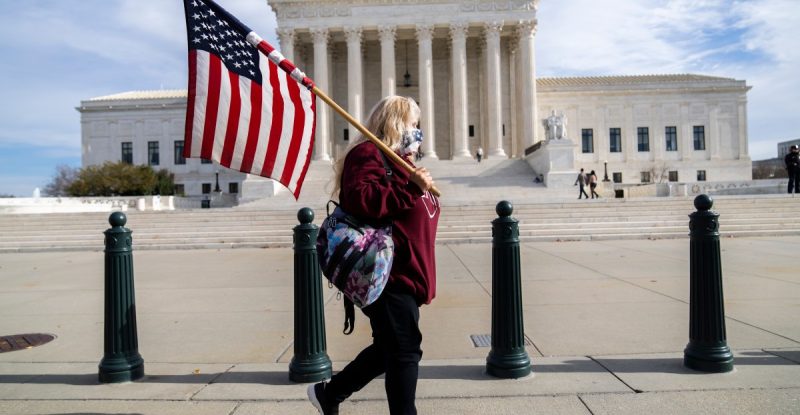
The Supreme Court is set to hear a crucial case, *Trump v. CASA*, on May 15th, focusing on Donald Trump’s attempt to revoke birthright citizenship for many US-born children. While the unconstitutionality of Trump’s executive order is clear, the case’s true significance lies in its potential to reshape the landscape of nationwide injunctions.
The issue at hand isn’t primarily about birthright citizenship itself; rather, it centers on the power of lower court judges to issue nationwide injunctions, orders that bind the entire federal government. This practice has been a source of contention for years, with Justice Neil Gorsuch previously arguing for limitations on their use, citing concerns about ‘judge-shopping’ and potential for manipulation of the system.
The problem of ‘judge-shopping’ became particularly pronounced during the Biden administration. Judges in Texas, notably Judge Matthew Kacsmaryk, issued several injunctions against various liberal policies, highlighting the potential for partisan bias in this process. The Supreme Court’s handling of these injunctions, often showing a disparity in treatment depending on the administration in power, further fueled the debate.
The Biden administration’s solicitor general, Elizabeth Prelogar, even filed a brief urging the Supreme Court to limit nationwide injunctions before leaving office, anticipating the potential benefit to a Trump administration. While the Court didn’t act on that brief directly, they chose to address the issue in the *CASA* case, making it a pivotal moment.
The unconstitutionality of Trump’s birthright citizenship order is undeniable. The 14th Amendment clearly grants citizenship to all persons born within the US, regardless of their parents’ immigration status. The Supreme Court’s 1898 ruling in *United States v. Wong Kim Ark* further solidifies this principle. Trump’s lawyers even avoided directly challenging the order’s constitutionality, focusing instead on limiting the scope of the lower courts’ injunctions.
However, the nationwide injunction issue presents a complex dilemma. While limiting these broad injunctions could prevent undue disruption of government activities, a complete ban could render many court orders ineffective. The plaintiffs in the *CASA* case, including CASA, Inc. and the Asylum Seeker Advocacy Project (ASAP), highlight the practical challenges of limiting injunctions to specific plaintiffs, arguing it would create an administrative nightmare and potentially violate equal protection principles.
The states involved also raise important points about standing and the impact on state-funded programs. The loss of funding due to the potential decrease in the number of citizens in a state is a strong argument for their standing in the case. Furthermore, the states highlight significant administrative burdens and the necessity of nationwide injunctions to ensure effective relief.
The Supreme Court’s decision in *CASA* will have far-reaching consequences, impacting not only birthright citizenship but also the broader power dynamics between the federal government and lower courts. While the Court may not entirely dismantle the practice of nationwide injunctions, the case promises to offer significant insight into the future application of these powerful legal tools.









